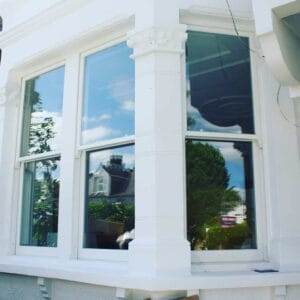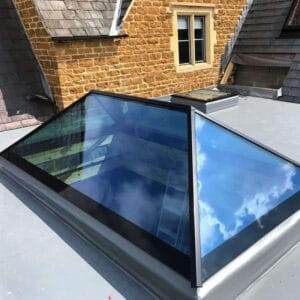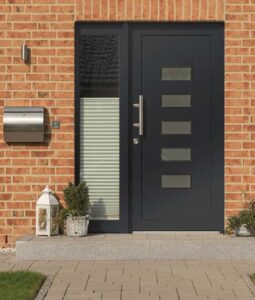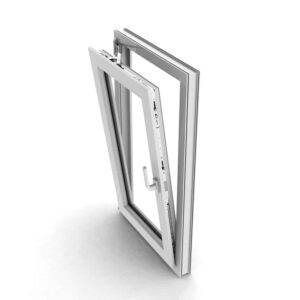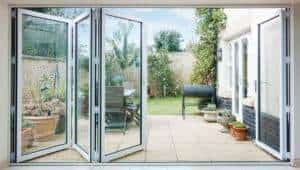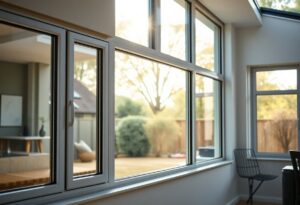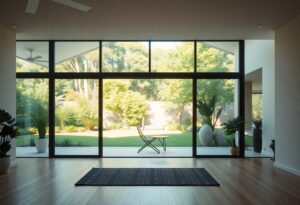With the increasing need for effective soundproofing in our homes, you may find yourself pondering the benefits of double versus triple glazing. Both glazing options offer varying levels of noise reduction, but understanding which is right for your situation is imperative. This post will guide you through the key differences in soundproofing performance between these two types of windows, helping you make an informed decision. You might also find it interesting to explore do triple pane windows have better soundproofing than… for further insights.
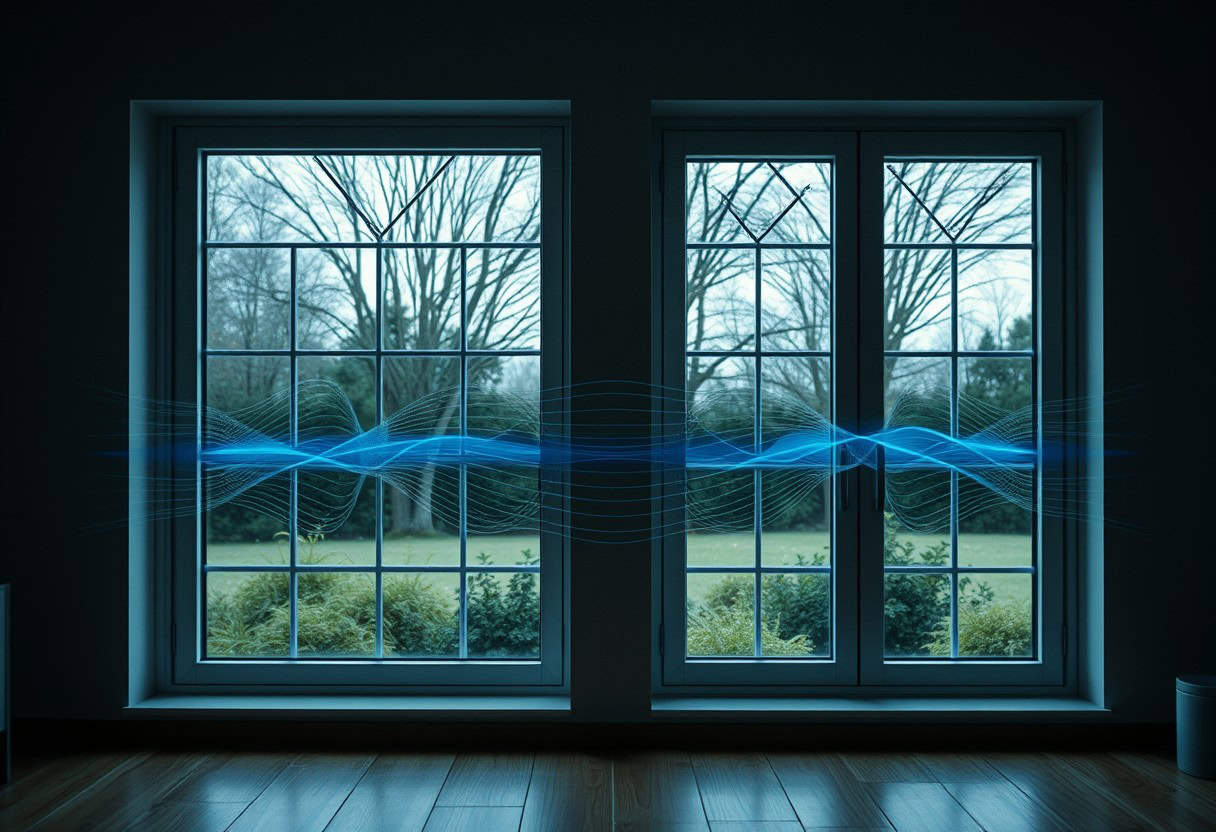
Understanding Sound Transmission
To understand sound transmission, it’s imperative to know how sound travels through various materials. Sound waves can penetrate structures, with their ability to do so measured by the Sound Transmission Class (STC), which indicates the effectiveness of soundproofing. Factors such as window design, material, and spacing between the panes significantly influence your sound insulation. Common sources of noise pollution, like traffic, construction, and neighbours, can be effectively mitigated with both double and triple glazing, offering you a more peaceful living environment.
Benefits of Double Glazing
Before considering your options, it’s vital to understand the advantages of double glazing in soundproofing applications. Double glazing significantly enhances your home’s energy efficiency, helping to reduce heating costs and maintain a comfortable living environment. Typically, sound transmission class (STC) ratings for double-glazed windows range from 28 to 32, making them sufficient for many residential situations, such as homes located near moderate traffic. The cost implications are generally lower than triple glazing, making double glazing a practical choice. For more insights, check out this discussion on Double vs. Triple Glazed Windows : r/AskIreland.
Advantages of Triple Glazing
As you consider your options for soundproofing, triple glazing offers several significant benefits. With its enhanced noise reduction capabilities, you can enjoy a quieter living environment, particularly if you live in a busy urban area or near a railway line. The additional pane not only improves energy efficiency but can also lead to long-term savings on your heating bills. In situations where noise is a persistent concern, such as near airports or busy roads, triple glazing is often preferable over double glazing, ensuring that peace and comfort are paramount in your home.
Cost Considerations
The financial implications of choosing between double and triple glazing can impact your long-term budget significantly. While triple glazing typically has higher upfront costs, it often provides greater energy savings over time and enhanced noise reduction effectiveness. When comparing pricing structures, it’s vital to assess not only the initial investment but also the potential savings on energy bills and the value added to your property. By evaluating your specific needs and considering both short-term expenses and long-term benefits, you can make a budget-conscious decision that suits your lifestyle.
Aesthetic and Functional Considerations
Even when prioritising soundproofing, you shouldn’t overlook the aesthetic differences between double and triple glazing. Double glazing tends to offer a more streamlined appearance, while triple glazing is bulkier, potentially affecting overall property value and visual appeal. Furthermore, you might notice variations in internal light quality, with triple glazing typically allowing slightly less light due to its thickness. On the functional side, consider that triple glazing is usually heavier, necessitating stronger frames and more robust installation methods, which could influence your choice based on structural modifications needed for your property.
Maintenance and Longevity
Clearly, both double and triple glazing options require minimal maintenance, primarily involving regular cleaning of the glass surfaces and checking the seals. However, triple glazing may necessitate more vigilance due to its increased components, which can prove more susceptible to seal failure over time. Such failures can hinder your long-term soundproofing effectiveness, leading to diminished performance. With proper care, the lifespan of both types typically ranges from 20 to 30 years, but early detection of any issues is vital for ensuring you maintain optimal sound insulation.
Conclusion
Now that you understand the differences between double and triple glazing for soundproofing, you can make an informed decision that suits your needs. Consider factors such as your local noise levels, budget, and energy efficiency requirements when choosing the right option for your home. By investing in the appropriate glazing, you can significantly enhance your living environment, ensuring a quieter, more comfortable space. Your choice will ultimately contribute to the overall quality of your home and your well-being.
FAQ
Q: What is the difference between double and triple glazing in terms of soundproofing?
A: The primary difference lies in their construction. Double glazing consists of two panes of glass separated by a spacer, while triple glazing includes three panes with two spacers. The additional pane in triple glazing can better reduce noise transmission, making it generally more effective for soundproofing than double glazing.
Q: How does the thickness of the glass impact soundproofing?
A: The thickness of the glass plays a significant role in sound insulation. Thicker glass panes can help to block lower-frequency sounds more effectively. In both double and triple glazing, using differently thick glass panes can enhance soundproofing further by creating an uneven sound barrier that reduces resonance.
Q: Are there any specific soundproofing features to look for in double or triple glazing?
A: Yes, look for features such as laminated glass options, which consist of a layer of plastic between two glass panes. This design enhances sound insulation by dissipating sound vibrations. Additionally, the spacer materials used in glazing units can also provide better soundproofing if they are designed to reduce noise transmission.
Q: How does the space between the panes affect soundproofing?
A: The space between the panes of glass can significantly impact sound insulation. Wider spaces can help reduce sound transmission as they prevent sound waves from travelling easily. However, the optimal gap often depends on several factors, including the type of glass and the overall design of the glazing unit.
Q: Is additional insulation needed if I choose triple glazing for soundproofing?
A: While triple glazing provides excellent soundproofing, additional insulation may still be beneficial. It is advisable to assess the overall sound insulation requirements of your property and consider combining triple glazing with other soundproofing measures, such as acoustic curtains, to achieve the best results.
Q: What type of noise can double or triple glazing effectively reduce?
A: Double and triple glazing are effective at reducing a variety of noises, including traffic sounds, construction, and neighbourhood disturbances. The effectiveness can vary depending on the frequency of the sound; higher frequencies may be diminished more easily than lower frequencies, but both types of glazing can significantly reduce environmental noise.
Q: Is there a significant cost difference between double and triple glazing for soundproofing?
A: Yes, there is typically a cost difference, with triple glazing being more expensive than double glazing due to the additional pane of glass and more advanced manufacturing processes. When considering soundproofing options, it’s necessary to weigh the benefits against the cost and decide which option best fits your budget and soundproofing needs.

